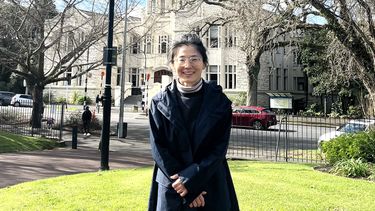Webinar: Encountering infrastructural interruptions and maintaining transnational lives in China

Event details
This event has taken place.
Description
Encountering infrastructural interruptions and maintaining transnational lives amongst foreigners in China
Speaker: Prof. Bingyu Wang, Nankai University, China
Abstract: Drawing on in-depth biographical interviews with foreign scholars in China (hereafter ‘FSC’), this paper examines the impact of various infrastructural interruptions on the transnational lives of mobile individuals during the COVID-19 pandemic. It explores how the labour of maintenance and resourceful quick-fixes employed by FSC constitute infrastructuring strategies in times of isolation and uncertainty. Specifically, the paper first asks how specific COVID- 19-induced infrastructural barriers, such as tightened visa policies, mandatory PCR testing for border crossing, and suspended flights, intersect with the (im)mobility experiences and trajectories of FSC. Second, the paper investigates how these individuals navigate and cope with infrastructural glitches by fashioning a set of infrastructuring strategies to maintain transnational lives within the pandemic context. In doing so, this paper develops a deeper understanding of not only the generative but also destructive capacities of infrastructural processes in terms of their transformative effects on migrant identities, aspirations and lived experiences, further revealing the fragility, incompleteness and situationality embedded in migration infrastructures. More critically, this paper theorises how infrastructural interruptions constitute the necessary social-temporal conditions in which individuals’ infrastructuring strategies emerge through acts of waiting, adaptation and maintenance.
Bio: Bingyu Wang is a Professor in Sociology at Nankai University and the Associate Editor of Journal of Ethnic and Migration Studies. Her research is of interdisciplinary nature and involves a wide range of pressing global issues such as labour precarity, migrant wellbeing and diverse societies. She studies on international and internal migrations, cosmopolitanism and migrant subjectivities, with a geographic focus on Asia-Pacific and theoretical focus on emotions, time/temporalities, infrastructures and the everyday. She has published widely on these topics in high-ranked international journals and been currently working on projects related to academic (educational) mobilities between the Global North and the South.
The speaker will be online and we will use Voovmeeting tool. Prof. Wang talk will be streamed in the Wave, Seminar Room 15 for in person participants.
